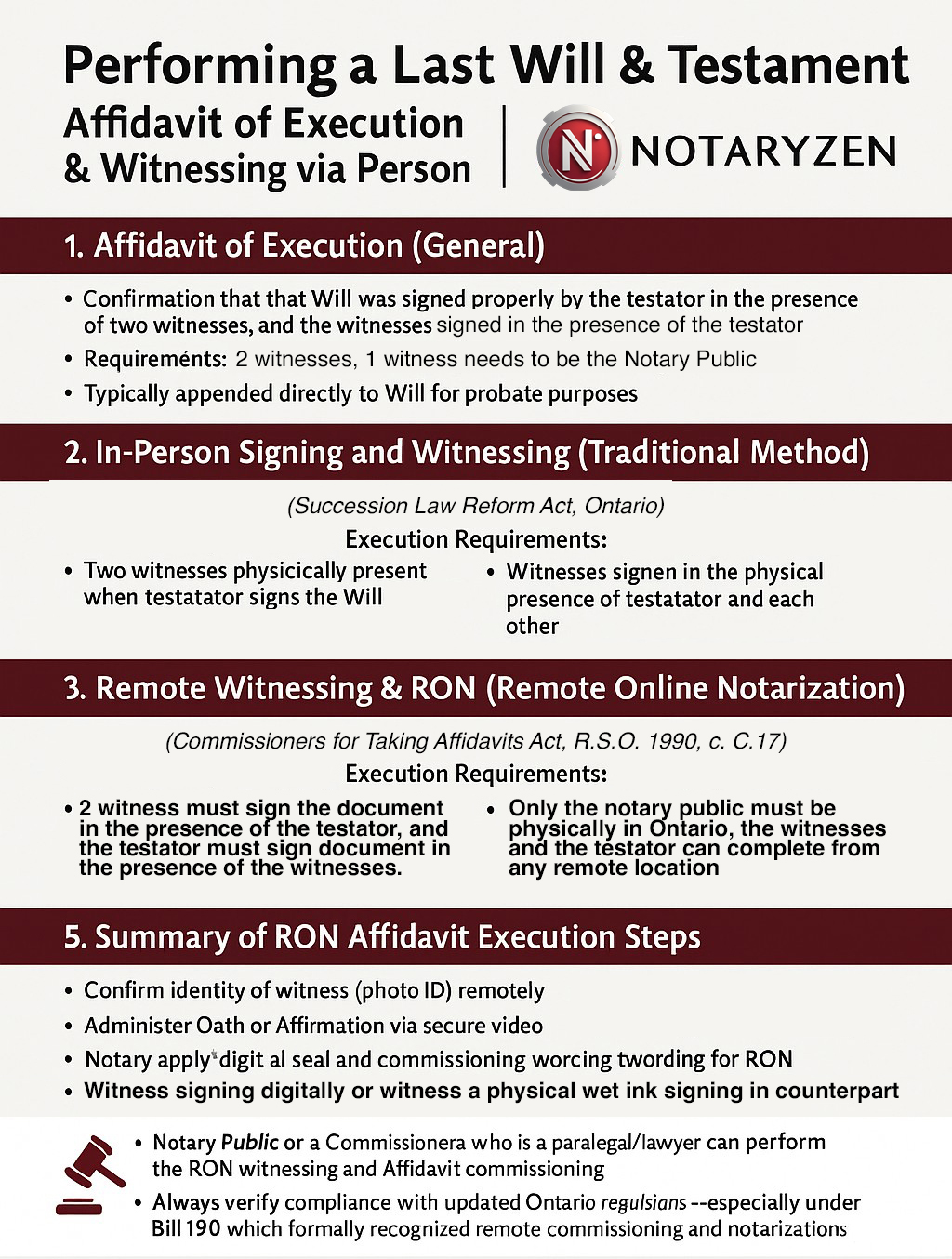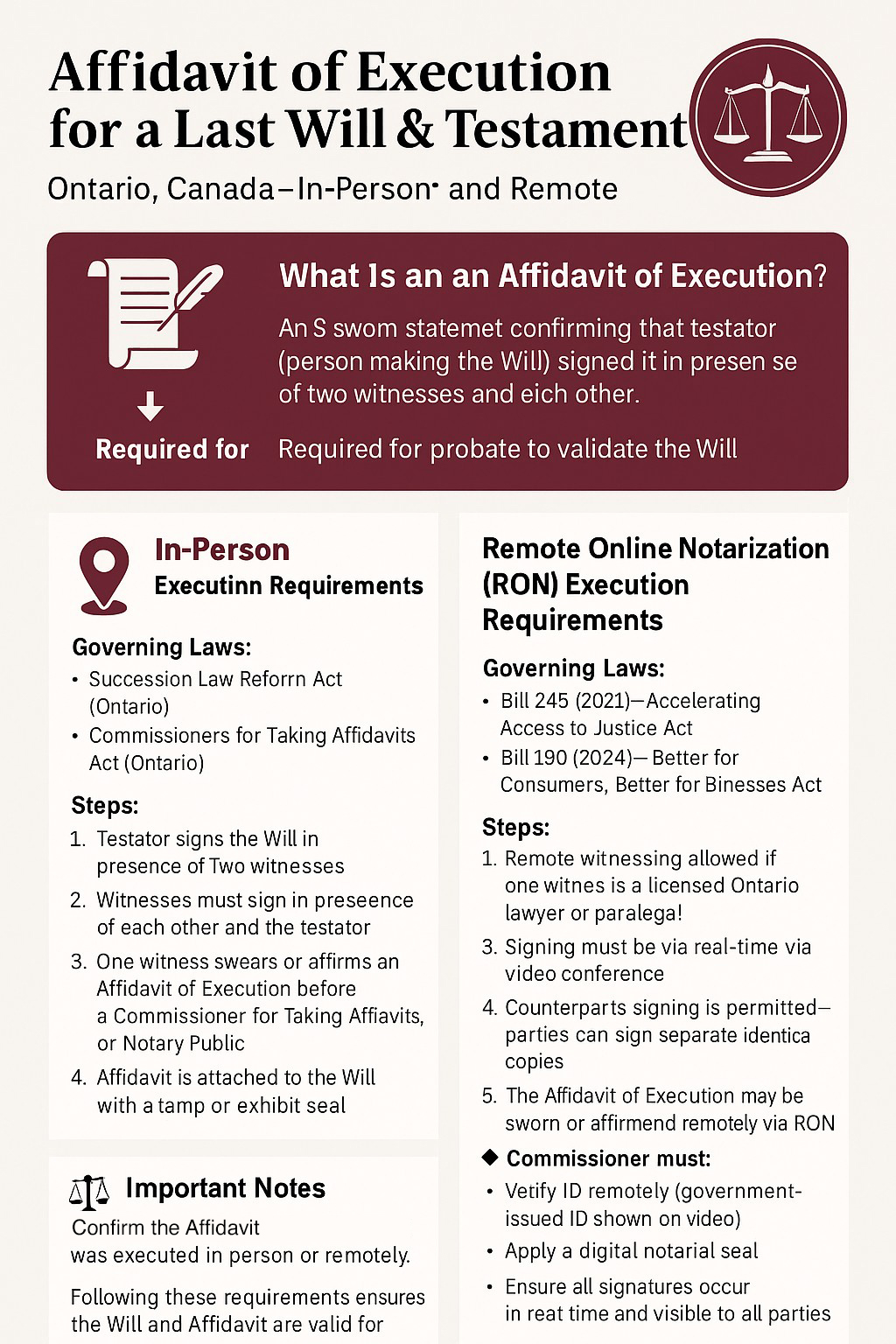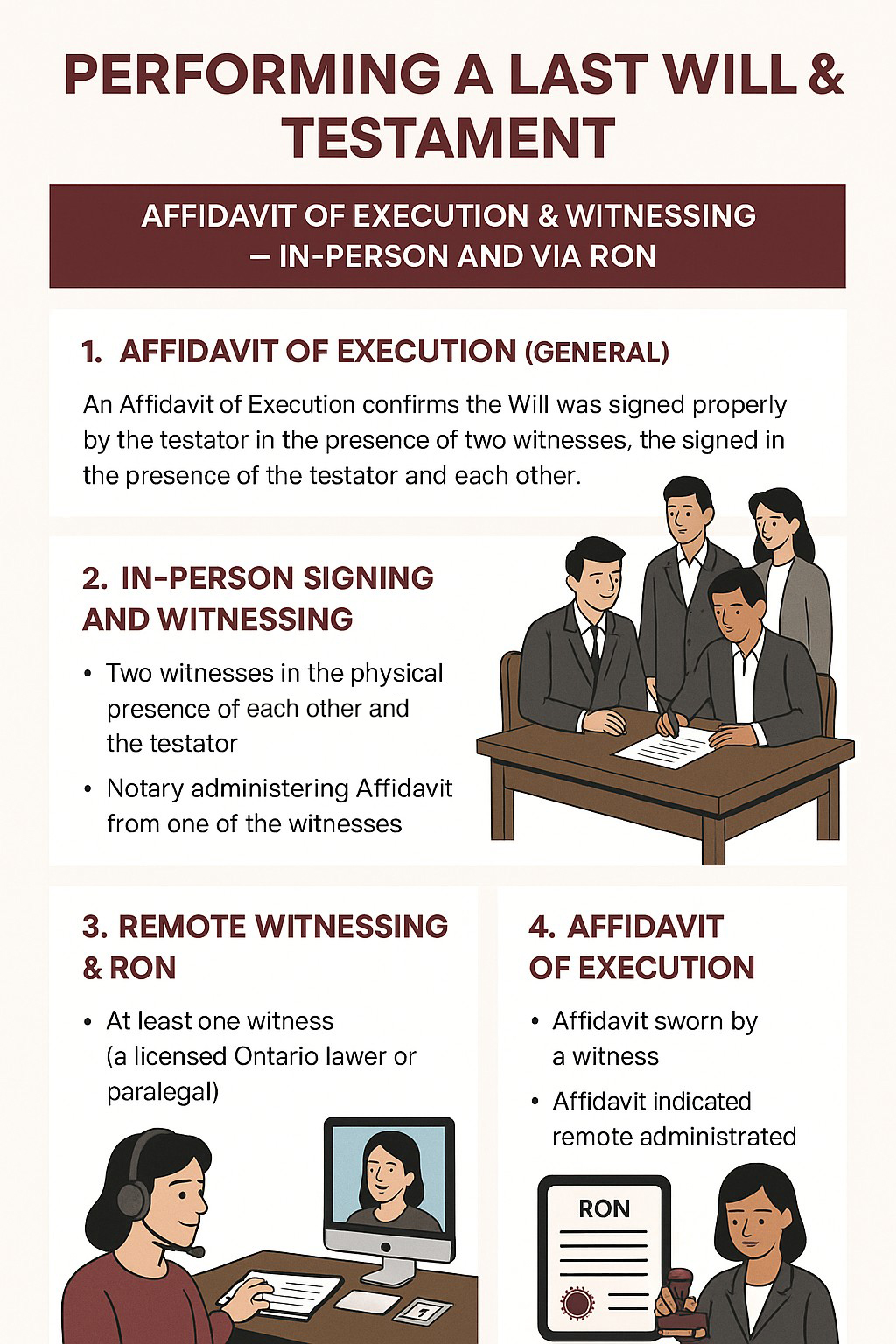🖋️ Affidavit of Execution for a Last Will & Testament
Ontario, Canada – In-Person and Remote Online Notarization (RON)
📜 What Is an Affidavit of Execution?
An Affidavit of Execution is a sworn statement confirming:
- The testator (person making the Will) signed it in the presence of two witnesses.
- The two witnesses signed in the presence of the testator and each other.
➡️ Required for probate to validate the Will.
📍 In-Person Execution Requirements
Governing Laws:
- Succession Law Reform Act (Ontario)
- Commissioners for Taking Affidavits Act (Ontario)
Steps:
- Testator signs the Will in the presence of two witnesses.
- Witnesses must sign in the presence of each other and the testator.
- One witness swears or affirms an Affidavit of Execution before:
- A Commissioner for Taking Affidavits, or
- A Notary Public.
- The Affidavit is attached to the Will with a stamp or exhibit seal.
💻 Remote Online Notarization (RON) Execution Requirements
Governing Laws:
- Bill 245 (2021) – Accelerating Access to Justice Act
- Bill 190 (2024) – Better for Consumers, Better for Businesses Act
Steps:
- Remote witnessing allowed if one witness is a licensed Ontario lawyer or paralegal.
- Signing must happen via real-time video conference.
- Counterparts signing is permitted — parties can sign separate identical copies.
- The Affidavit of Execution may be sworn or affirmed remotely via RON.
- The Commissioner must:
- Verify ID remotely (government-issued ID shown on video).
- Note that the commissioning was conducted remotely.
- Apply a digital notarial seal.
⚖️ Important Notes
- Clearly indicate whether the Affidavit was executed in-person or remotely.
- Maintain full audit trails for RON (recordings, ID verification logs).
- Retain RON session records for at least 7 years (best practice).
- Ensure all signatures occur in real-time and are visible to all parties.



